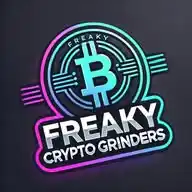
Web 3, Finance, Crypto, Blockchain, Business
1.0K subscribers
Similar Channels
Swipe to see more
Posts

*CRYPTO UPDATES* - 16th February 2025. 1. A crypto ‘sniper’ made $27.8M trading CZ-inspired Broccoli memecoins, sparking insider trading allegations. 2. Joe Rogan Goes All-In on Bitcoin 3. Dubai’s crypto regulator says memecoins issued in the emirate must comply with VARA regulations. 4. Argentina's President, Javier Milei, has ordered an investigation into the rug pull of the $LIBRA cryptocurrency, which he promoted. 👀 5. Hyperliquid’s $HYPE token surges 176% since launch, outpacing $BTC and $ETH. 6. Man was arrested after climbing to the top of the Hollywood sign while waving a flag promoting a cryptocurrency website. 👀 7. 🇺🇸 Senator Cynthia Lummis says, “A #bitcoin reserve could be audited any time 24/7 with a basic computer.” 8. Michael Saylor proposes that the US should acquire 20% of all #Bitcoin. 9. Vitalik Buterin argues for a higher $ETH gas limit, citing benefits for censorship resistance, L2 interoperability, and security in case of disasters. 10. Analysts had predicted a delayed altcoin season as memecoins dominate retail speculation, and daily active wallets remain low. 11. Hong Kong crypto exchange HashKey raises $30M from China’s Gaorong Ventures at a $1.5B valuation. 12. Less than 5% of #Bitcoin's total supply is left to be mined ever.

*If you have any Liquidity on any of this tokens in your BYBIT EXCHANGE remove it before FEB 21🤌*

*CRYPTO UPDATES* - 10th February 2025. 1. Bitcoin is almost approaching back to $100,000. But currently at $97,300. 2. Trump’s World Liberty Fi acquires 273,937 $MOVE for 156,667 $USDC. 3. Michael Saylor's STRATEGY just bought another 7,633 Bitcoin worth $742 million. 4. Publicly traded Metaplanet to acquire 21,000 Bitcoin worth $2 billion by 2026. 5. 🇯🇵 Japan to scrap ban on Bitcoin ETFs and cut taxes on crypto-assets from 55% down to 20% 6. 🇯🇵 JAPAN TO CLASSIFY BITCOIN AS FINANCIAL PRODUCTS LIKE SECURITIES - Nikkei 7. CoinShares files for an $XRP and $LTC ETF with Nasdaq. 8. Florida Senator Joe Gruters introduces bill to invest in Bitcoin 🇺🇸 9. Trust Wallet now supports the XRP Ledger, allowing users to store, send, and receive $XRP and XRPL tokens. 10. CZ says Binance’s token listing process is broken and needs reform, suggesting CEXs should automate listings like DEXs to prevent price spikes before launch. 11. UK landfill site containing an 8,000 #Bitcoin hard drive worth $768M is set to shut. 12. Ethereum $ETH short positions reach largest in history 13. Fact: Public companies hold a total of 622,735 BTC, worth $59.82B, representing 2.965% of the total 21M BTC supply. 14. Michael Saylor predicted on FOX NEWS, “The US dollar will remain the world reserve currency, operating on billions of mobile devices, with Bitcoin as the underlying digital asset.”

*CRYPTO UPDATES - 13th February 2025.* 1. Binance founder Changpeng Zhao (CZ) wants to launch a dog-themed meme coin on BNB Chain 2. Metaplanet raises $26.32M via bond issuance, to purchase more $BTC 👀 3. President Trump’s tariffs to be delayed, may begin April 1. 4. Old contract of Ethereum founder Vitalik Buterin's first dog $RASTO is up 364% today. 5. Deutsche Bank-backed Taurus adds Solana to its digital asset custody and tokenization services. 6. #Bitcoin whale inflows to exchanges near a 5-year high, historical trends suggest a $BTC bull run could be on the horizon. 7. Retail wallets hit a 5-month low, all the while whales accumulate $3.8B in $BTC. 8. 🇺🇸 Morning Economic Data: *Jobless Claims: Beat 🟢 *Continuing Jobless Claims: Beat 🟢 *PPI MoM: Miss 🔴 *PPI YoY: Miss 🔴 *Core PPI MoM: In Line *Core PPI YoY: Miss 🔴 Like CPI on Wednesday, PPI comes in hot on Thursday. 9. 🇺🇸 JPMorgan: Tether might sell $BTC due to new US stablecoin rules. 👀 10. Coinbase is preparing to re-enter the Indian market after halting operations in 2023. 11. Solana Tokens Now Available on Ledger Live Mobile 12. Mastercard has tokenized 30% of its transactions in 2024 and acknowledges stablecoins’ potential to disrupt traditional finance. 13. $BNB flips $SOL to become the 5th largest crypto by market cap. 👀 14. OpenSea announces $SEA token is coming, historical usage will matter, and US users are eligible. 15. Robinhood CEO: “crypto will be a significant benefit for the business.” 👀 16. 21SHARES Proposes Staking For #Ethereum $ETH ETF's 17. Robinhood shares rose 17% in after-hours trading as its Q4 crypto revenue jumped 700% year-on-year. 18. National Bank of Canada has purchased $2 million in Bitcoin ETFs. 19. New Mexico could purchase up to $2 billion in Bitcoin if a new bill is passed. 20. VanEck analyzed #Bitcoin reserve bills for 20 states and projects that if they’re enacted it could lead to states buying $23 billion worth of Bitcoin.

Things are moving fast😸

*Setting Up a Decentralized Identity Wallet* Welcome to our *Thursday session*! On Tuesday, we explored *blockchain-based digital identity*, its importance, and how it can revolutionize sectors like finance, healthcare, and online security. Today, we’ll take a *practical approach* and guide you through setting up a *Decentralized Identity Wallet*—a crucial tool for managing your digital identity securely. *What is a Decentralized Identity Wallet?* A *Decentralized Identity (DID) Wallet* is a digital application that allows you to store, manage, and verify your identity on the blockchain. Unlike traditional identity systems, where centralized institutions control and verify your identity, *DID wallets put you in full control of your data*. With a DID wallet, you can: ✅ Securely store identity credentials (e.g., government IDs, academic certificates, medical records). ✅ Share identity information selectively without exposing sensitive details. ✅ Prove who you are online without needing a third party. ✅ Log in to apps and services without passwords using Self-Sovereign Identity (SSI) principles. Popular DID wallets include Microsoft’s ION, Sovrin, uPort, and Dock Wallet. *Step-by-Step Guide to Setting Up a DID Wallet* 1. *Choose a Decentralized Identity Wallet* - First, decide which DID wallet suits your needs. Some options include: - uPort (Ethereum-based, used for self-sovereign identity) - *Sovrin* (Built specifically for decentralized identity) - *Dock Wallet* (Used for digital credentials verification) - *Microsoft ION*(Runs on Bitcoin’s blockchain for identity verification) For beginners, *uPort or Dock Wallet* is a great place to start. 2. *Download and Install the Wallet* Visit the official website or app store to download the DID wallet application. Ensure you're using a trusted source to avoid scams. 3. *Create Your Decentralized Identity* Once installed, follow these steps: - Generate a *Decentralized Identifier (DID) - this is your blockchain-based identity address. - Secure your *private key* (just like a crypto wallet, losing this means losing access to your identity). - Back up your identity credentials in a safe place 4. *Add and Verify Credentials* Many DID wallets allow you to link official identity documentslike: - *Government-issued IDs* - *Education certificates* - *Health records* Some blockchain identity networks partner with institutions to issue *verifiable credentials*, ensuring authenticity. 5. *Use Your DID for Secure Authentication* Instead of logging into websites with a username and password, some Web 3.0 platforms and apps let you log in using your DID wallet—no need to trust centralized servers with your credentials! *How Decentralized Identity Improves Security and Privacy* Traditional identity systems store data on centralized servers, making them prime targets for hackers. DID wallets solve this problem by: ✅ *Removing centralized storage* - Your identity is on a decentralized blockchain network, reducing the risk of hacks. ✅ *Giving you full control* - Only you decide when, how, and with whom to share your identity. ✅ *Enabling selective disclosure* - You don’t need to reveal all your details—just prove what’s necessary. For example, a bar verifying your age can confirm you're over 18 without knowing your birthdate. *Real-Life Applications of DID Wallets* 1. *Financial Services* – Banks can use DID wallets for *faster and more secure KYC (Know Your Customer) verification*, reducing identity fraud. 2. *Healthcare*– Patients can store medical records and share them *only with authorized doctors*, ensuring privacy and security. 3. *Education & Job Applications*– Employers can verify degrees and certifications instantly, reducing document forgery. 4. *Online Security* – DID wallets eliminate the need for multiple passwords, allowing passwordless logins with *cryptographic authentication*.

*DOGS Update* *Claim Gift 🎁*

*CRYPTO UPDATES* - 1st February 2024. 1. Currently, Solana ETF's chances of being approved in 2025 are nearing 90% on Polymarket. 2. 🇺🇸 Spot #Bitcoin ETFs bought $5.3 billion worth of bitcoin this month, while miners only mined $1.4 billion worth of new bitcoin. So much demand, not enough supply 🟢 Bullish 🚀🚀 3. 🇸🇻 El Salvador bought 5 #Bitcoin in the last 24 hours for its Strategic Reserves. 4. Indiana state representative proposes bill to allow retirement funds to invest in Bitcoin ETFs. 5. BlackRock today bought 17,261 ETH worth $56.65M. 6. 🇺🇸 FOX BUSINESS: Senator Lummis said, “Having Bitcoin in reserves can help the US dollar stay strong.” 7. 🇺🇸 Trump’s new FBI chief owns $115K Bitcoin through BlackRock’s ETF. 8. 🚨 MICHAEL SAYLOR: “Every Bitcoin you don’t buy is going to cost you $13 million, my friend.” 9. Tephra Digital has unveiled a graphic tracking 🇺🇸 U.S. states’ legislative efforts to establish Bitcoin strategic reserves. 10. The Satoshi statue by @satoshigallery has arrived in 🇸🇻 El Salvador, en route to its final destination: Bitcoin Beach. 11. Federal Reserve Chair Jerome Powell said, “Banks are perfectly able to serve crypto customers as long as they understand and can manage the risks.” 12. 🇺🇸 Grayscale files for Dogecoin ETF with the NYSE. 13. Interestingly, there is a whale/institution that has accumulated 11,637 $AAVE($3.93M) and 430,504 $MORPHO($1.37M) via #Flowdesk in the past 10 hours. 14. 21Shares files S-1 for Polkadot $DOT ETF. 15. Swiss banking giant UBS, managing $5.7 trillion in assets, has tested its UBS Key4 Gold offering on Ethereum’s Layer-2 network ZKSync to explore scaling and privacy solutions.

*Digital Identity in Blockchain Systems* Welcome to our Tuesday session! Today, we’re diving into an exciting and crucial topic— Digital Identity in Blockchain Systems. In a world where data breaches, identity theft, and privacy concerns are growing, blockchain technology offers a transformative solution to secure and manage digital identities. *What is Digital Identity?* A *digital identity* is an online or electronic representation of a person, organization, or device. It includes information such as: - Personal details (name, date of birth, nationality) - Biometric data (fingerprints, facial recognition, iris scans) - Social media accounts - Financial and medical records Currently, most digital identities are controlled by centralized entities like governments, banks, and social media platforms. This means they have full control over your data, can restrict access, and are vulnerable to hacking. Blockchain offers an alternative—a decentralized and self-sovereign identity (SSI) system where users control their data without relying on a single authority. *How Blockchain Secures Digital Identity* Blockchain-based digital identity systems use *decentralization, encryption, and smart contracts* to protect user data. Here’s how it works: 1. *Decentralization* - Unlike traditional identity systems stored in centralized databases, blockchain distributes identity records across multiple nodes, making it nearly impossible for hackers to alter or steal data. 2. *Cryptographic Security* - Instead of storing actual personal data on the blockchain, digital identity systems use cryptographic hashes—unique digital fingerprints that verify authenticity without exposing sensitive details. 3. *Self-Sovereign Identity (SSI)* - With blockchain, users control their identity and decide who can access their data. Instead of multiple usernames and passwords for different platforms, blockchain allows *single sign-on (SSO)* where users prove their identity once and use it across multiple services. 4. *Smart Contracts* - These automate verification processes. For example, a smart contract can verify if a person is over 18 without revealing their birthdate. *Real-World Applications of Blockchain-Based Digital Identity* 1. *Government Identification & Voting* - Countries like *Estonia and India*are exploring blockchain-based digital IDs for secure and fraud-proof citizen identification. - Blockchain can also be used in *e-voting systems* to prevent election fraud and ensure transparency. 2. *Financial Services & Banking* - Traditional Know Your Customer (KYC) processes are slow and costly. Blockchain streamlines KYC by enabling instant and secure verification of customer identity, reducing fraud. - *eg, Banks can use decentralized identity wallets* to verify a customer once and share that verification with multiple institutions. 3. *Healthcare & Medical Records* - Patients can *own and control their medical records*, granting doctors and hospitals access when needed. - eg, *Medicalchain is a blockchain platform that secures patient records and ensures they’re accessible only to authorized personnel. 4. *Online Security & Social Media* - Blockchain can eliminate fake accounts and bots by requiring cryptographic verification of identity. - Social media platforms could use blockchain to give users control over their personal data and prevent unauthorized tracking. 5. *Education & Professional Credentials* - Universities and employers can issue verifiable digital certificates stored on the blockchain. - *eg, MIT and IBM* have implemented blockchain-based diploma verification systems. *Why Does Digital Identity Matter for Web 3.0?* In Web 3.0, users should *own their digital presence* without relying on centralized platforms like Google or Facebook. Blockchain-based digital identity allows: ✅ *Privacy* - Users only share necessary details instead of their full identity. ✅ *Security* - No single point of failure, making identity theft harder. ✅ *Interoperability* - A single blockchain identity can be used across different platforms and services. ✅ *Control* - You decide who gets access to your data and for how long.

*Blockchain-Based Voting Systems: Enhancing Transparency and Security* Let's explore Blockchain-Based Voting Systems—a revolutionary application of blockchain that has the potential to improve elections by making them more secure, transparent, and tamper-proof. In many parts of the world, elections face challenges like voter fraud, tampering, lack of transparency, and low trust in electoral processes. Blockchain, with its decentralized, immutable, and verifiable nature, offers a promising solution to these issues. But how exactly does it work? Let’s dive in. *How Blockchain Voting Works* A blockchain-based voting system digitizes the election process while maintaining security and privacy. Here’s how a typical blockchain voting process works: Voter Identity Verification – Before voting, voters must verify their identity using decentralized identity (DID) systems or cryptographic keys. This ensures that only eligible individuals can vote while keeping their identity secure. Casting the Vote – Once verified, voters receive a unique digital token or encrypted key that represents their vote. They submit their vote via a blockchain-based application, similar to how transactions are recorded in a cryptocurrency network. Vote Recording on the Blockchain – Each vote is recorded on a public or private blockchain, ensuring transparency and immutability. Votes cannot be changed or deleted once submitted. Instant and Tamper-Proof Vote Counting – Unlike traditional voting systems that take days or weeks to count, blockchain voting systems can tally votes instantly and accurately using smart contracts. Public Verification of Results – Since the blockchain is transparent, voters and election observers can verify that votes were counted correctly without compromising voter privacy. Why Use Blockchain for Voting? Traditional voting methods—whether paper-based or electronic—often come with risks like vote tampering, miscounts, hacking, and lack of transparency. Here’s how blockchain improves the process: ✅ Security – Every vote is encrypted and linked to a unique voter identity, making it nearly impossible to alter or forge votes. ✅ Transparency – Since votes are stored on a public ledger, anyone can verify the results without altering the data. This increases public trust in election outcomes. ✅ Eliminates Voter Fraud – Voter registration and identity verification are secure and decentralized, preventing duplicate votes and fraudulent registrations. ✅ Efficiency – Blockchain automates vote tallying with smart contracts, reducing delays and human errors in counting. ✅ Accessibility – Citizens can vote remotely using blockchain apps, increasing voter participation—especially for those who cannot travel to polling stations. *Challenges of Blockchain Voting* Despite its advantages, blockchain voting still faces some challenges: 🔴 Digital Divide – Not everyone has access to blockchain technology, especially in regions with low internet penetration. 🔴 Scalability Issues – Handling millions of votes on a blockchain can be complex and require high computing power. 🔴 Regulatory Barriers – Many governments are still skeptical about digital voting systems and have not created legal frameworks for blockchain elections. 🔴 Security Risks – While blockchain is secure, voter devices (phones, computers) could be hacked, compromising the integrity of votes. Solving these challenges will be crucial for mass adoption of blockchain voting. Real-World Examples of Blockchain Voting Several governments and organizations have already tested blockchain voting systems: 🗳️ West Virginia, USA – Used blockchain-based voting in the 2018 midterm elections for overseas military personnel, increasing accessibility. 🗳️ Estonia – The Estonian government is exploring blockchain technology for secure digital elections as part of its e-Governance initiatives. 🗳️ Moscow, Russia – Piloted blockchain voting in local elections to improve transparency and trust in the electoral process. 🗳️ Voatz – A blockchain voting platform tested in several US states to allow secure voting via smartphones. These case studies prove that blockchain voting is not just theoretical—it’s already being tested and implemented in real elections!












